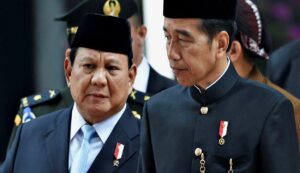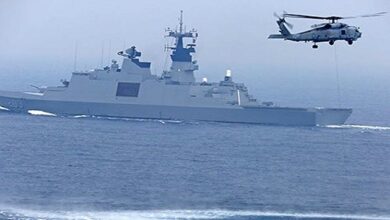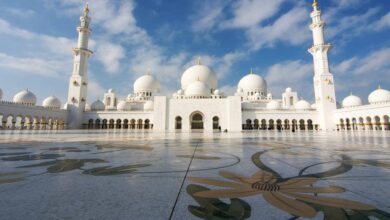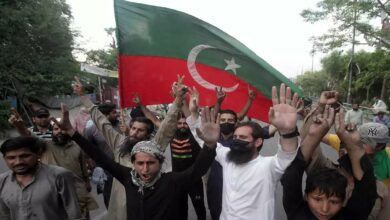Prabowo Subianto’s approach to foreign policy will be very different from his predecessor Joko Widodo: report
According to Al Jazeera, once Prabowo Subianto was elected president of Indonesia in October, many immediately started to question how his experience as a former special forces general would impact regional security during his five years in office.

Prabowo Subianto’s foreign policy strategy is expected to diverge significantly from that of his predecessor, Joko Widodo (often known as “Jokowi”), according to observers.
Al Jazeera claims that Jokowi prioritized expanding export markets and bringing in foreign investment to strengthen Indonesia’s economy above international relations and defense expenditures.
It is unclear how far Indonesia’s 73-year-old President Prabowo will lead his country in a new foreign policy path as tensions and competitiveness between China and the United States rise in the Asia-Pacific area.
According to Natalie Sambhi, an Indonesia specialist and executive director of Verve Research, “Prabo, through his defense minister, will drive more opportunities with the Pentagon, unlike Jokowi, who largely delegated foreign affairs and security matters.”
Nevertheless, there are indications that Indonesia is seeking to strengthen its ties with China, notably by restarting military drills. We have five years to see whether the frequency and complexity of military drills with the [Chinese] People’s Liberation Army improve to a level comparable to that of the US military,” Sambhi said.
The study claims that Prabowo’s early selection of state visits revealed some of his strategic thinking on Indonesia’s position in an area where military rivalry is changing quickly.
Prabowo, who was elected president of Indonesia, traveled to China in November after visiting Australia in August and Russia in September. He then proceeded to Washington, DC, where he met with President Joe Biden. He concluded the tour by calling Donald Trump, the US president-elect.
When Prabowo traveled to the UK in late November, he met with King Charles and British Prime Minister Keir Starmer.
Zachary Abuza, a Southeast Asian politics and security lecturer at the National War College in Washington, DC, emphasized Subianto’s decision to travel to China and Russia before the US, saying that “the decision to visit Russia and China ahead of the US certainly raised some alarm bells about what he is going to do with the bilateral relationship.”
However, Abuza added that Prabowo’s choice of countries to visit may have also been more a matter of timing and logistics than a symbolic declaration of strategic intent because a trip to the US would have been challenging during the country’s October and early November presidential election campaign.
According to Al Jazeera, Abuza also pointed out that the incoming Indonesian president might fortify ASEAN, or the Association of Southeast Asian Nations, particularly in light of the escalating competition between Beijing and Washington in the region.
The next Indonesian president may also imply a stronger Association of Southeast Asian Nations [ASEAN] amid the regional competition between Beijing and Washington, but Abuza says one thing is for sure: “Prabowo is going to be a different figure” when it comes to foreign policy.
According to Abuza, Prabowo “understands that ASEAN is more effective with a stronger Indonesia at the helm”.
Additionally, experts will be keenly watching how Indonesia, led by Prabowo, broadens its regional security alliances, according to Sambhi of Verve Research.
Verve Research researcher Sambhi said that “analysts would likely be looking at how Indonesia under Prabowo might deepen and diversify its regional security partnerships away from the twin poles of Washington and Beijing.”
According to Sambhi, Australia, France, India, the Philippines, South Korea, and Vietnam might be additional security partners for Indonesia.
“The more Indonesia does with other middle and emerging Indo-Pacific powers, the better for the region in mitigating the impact of US-China rivalry,” she said. –
Born in Jakarta in 1951, Subianto Prabowo joined the Indonesian Special Forces Command (Kopassus) after completing his studies at the Indonesian Military Academy in 1970 and graduating in 1974.
According to Al Jazeera, he was accused of a number of human rights violations during his time in the military, including alleged violations in East Timor and West Papua, Indonesia, as well as his role in the violent race riots that occurred in 1998 during the overthrow of then-President Soeharto, of whom he was once a son-in-law.





